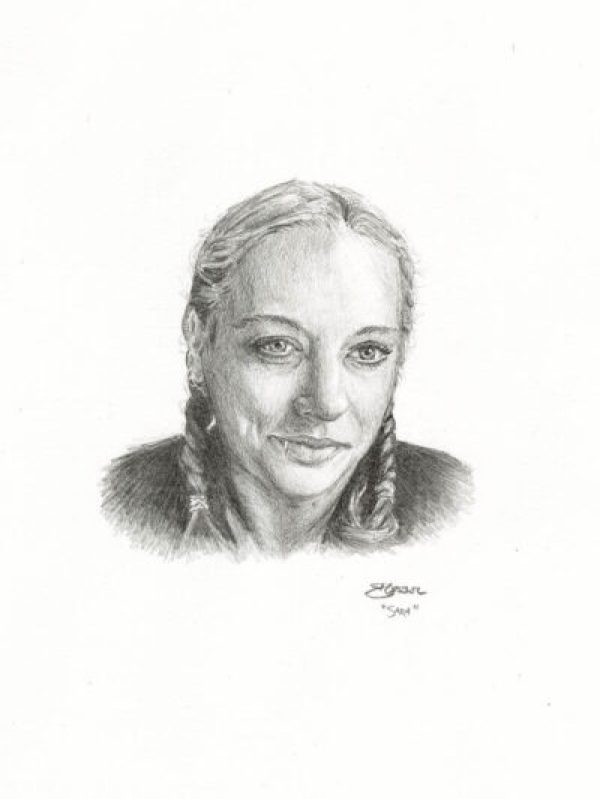Funny, smart, beautiful, and creative dreamer
When Sara Nixon was a little girl, she liked to play in her mother’s fabric box. She loved to hold the pieces up and admire their color or texture. She was a creative child–crafting, drawing self-portraits, making ceramics after school, and dressing up in costumes with friends. She helped her mother with tailoring work and eventually became a talented seamstress herself.
Sara loved animals of all kinds. She had pet bunnies growing up and could recite Peter Rabbit from cover to cover. She loved talking to their cockatiel, TJ and was heartbroken when he died.
Rosie raised Sara as a single mother. “Sometimes it felt like the two of us against the world, that we were all each other had,” Rosie remembered.
They moved five or six times as Sara was growing up, and the changes were hard on her. She became more individualistic and anti-establishment as she got older. She dyed her hair and gave herself a tattoo. She liked music and would memorize rap songs. On the outside, she became a bit guarded, but her kind heart remained.
“Sara had a lot of compassion for other people who were having trouble,” Rosie said. “She would go befriend the person who was left out. She was very protective of people that she cared about and wanted justice in the world. She had a tender heart. Life is not that tender at times.”
Sara had a hard time fitting in at school. She left high school after her junior year, moving to California, where she worked at Starbucks as a barista. She loved it and customers loved her, but the repetitive work injured her shoulder, and doctors prescribed oxycontin for Sara when she was 21.
“Her life was never the same after that,” Rosie said. “She became addicted right away. I think if you have mental health issues, and somebody gives you a drug like that, you’re going to go for it. And she did.”
Sara suffered from addiction for 15 years, going in and out of treatment programs, trying to find her way. She loved nail art and enjoyed doing her nails and posting pictures online. She pulled together old school transcripts and work documents and applied for a beauty school scholarship. Sara died the night before the interview.
Rosie had a bench made in Sara’s memory, placed in a park she loved. At her memorial, Sara’s high school friends described her as a tough cookie that didn’t put up with anything, a kind soul, and extremely funny.
“She was courageous,” Rosie added. “Because she knew things weren’t going well for her and she would try to find ways to fix it. That’s why I think the mental health thing is so important because she would get sober in treatment, and then she would just go right back. It’s almost like being her real self, in the real world, she just couldn’t do it. She had to have an alternative world to live in, which was addiction.”
When asked what she missed most about Sara, Rosie said, “I just miss being a mom. I really miss caring for her. All I wanted was for her to thrive and be happy in life. She wasn’t a horrible person, but this turned her into a little bit of a monster. But she wasn’t. She had a great heart, and I knew that was in there somewhere.”
Sara’s mother, Rosie Nixon, provided the information for this narrative.
April 6, 1981 – June 26, 2017-Age 36
Portrait Artist: Jeremy Hebbel
Narrative Writer: Lynne Mixson









